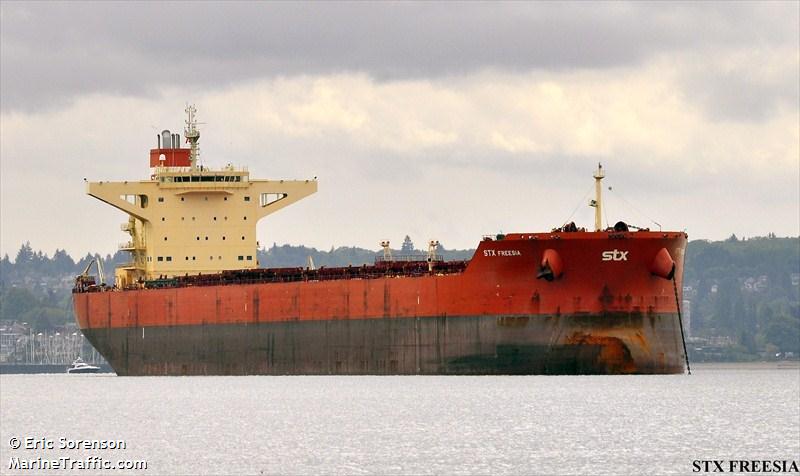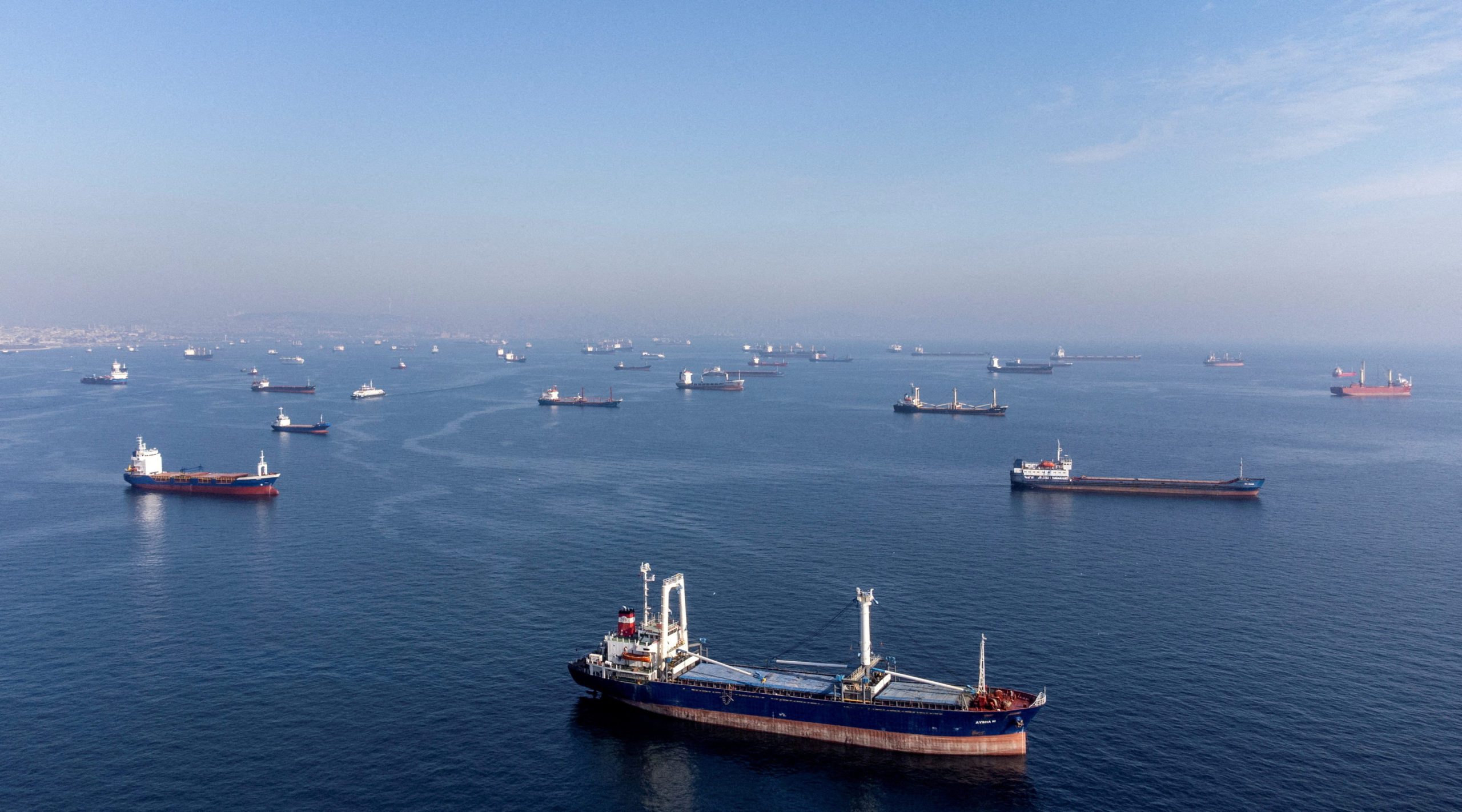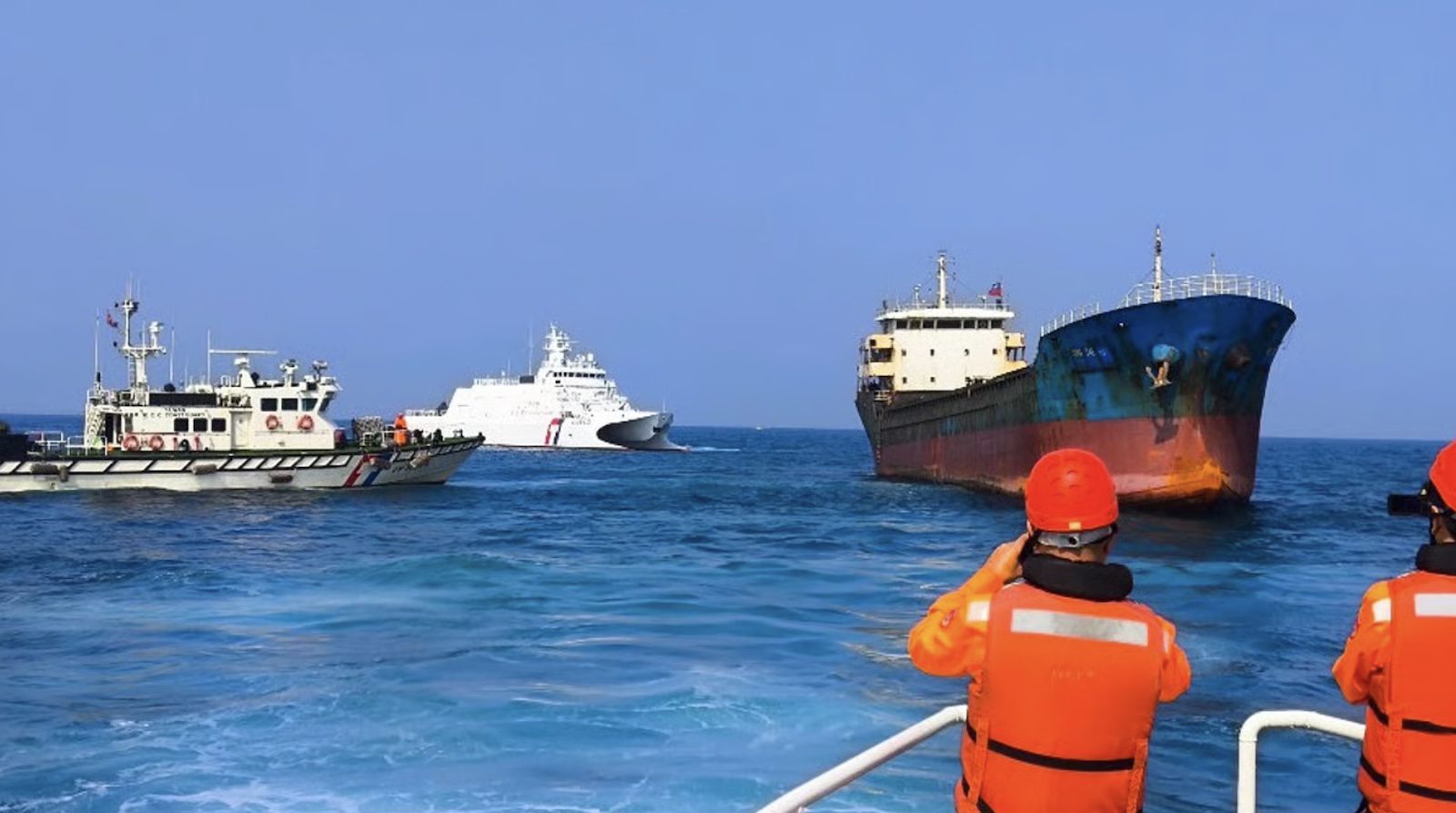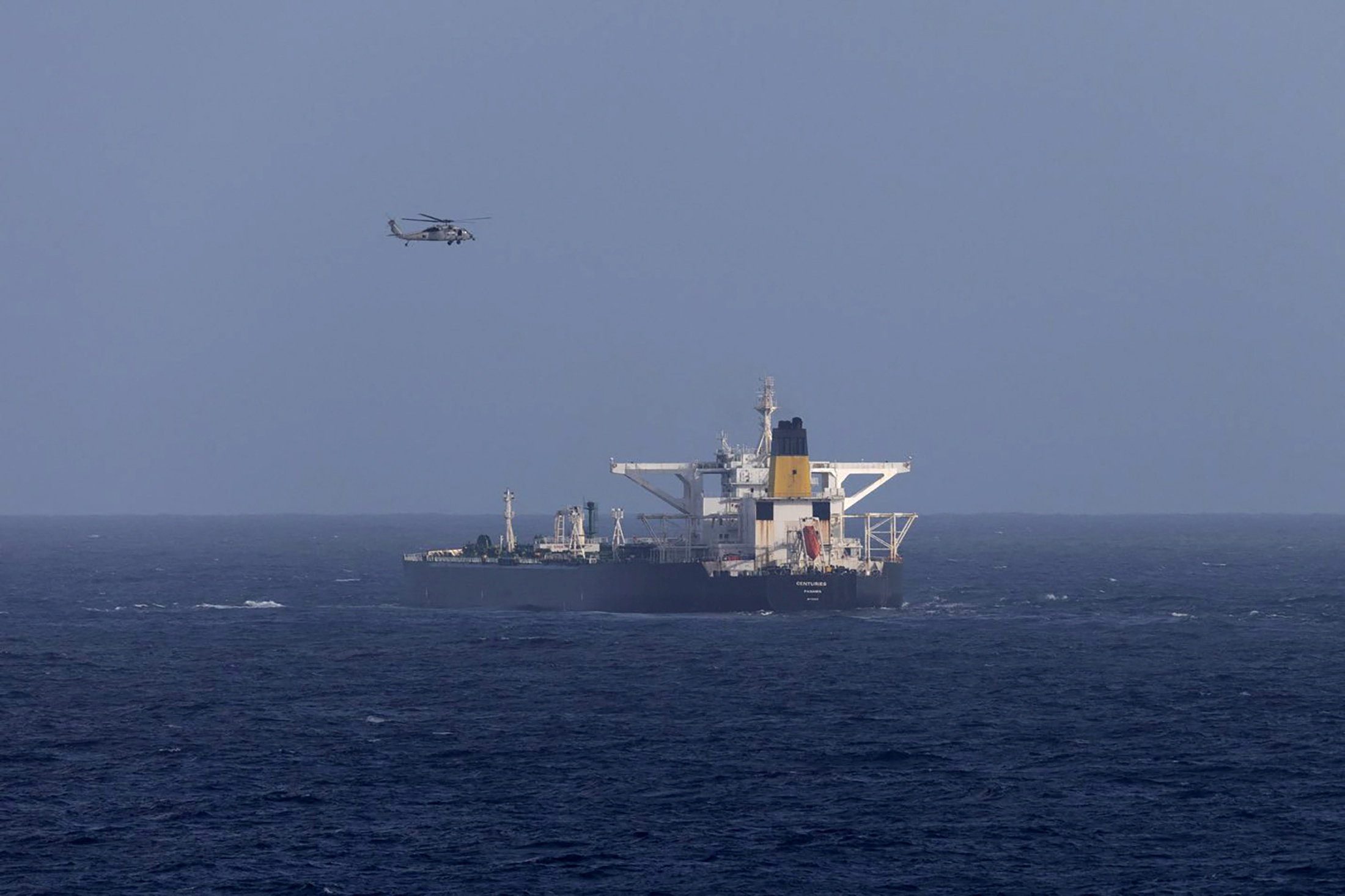 Jan 18 (Reuters) – The Baltic Exchange’s main sea freight index, which tracks rates for ships carrying dry commodities, rose on Friday for a eleventh straight session on Atlantic demand for capesize vessels.
Jan 18 (Reuters) – The Baltic Exchange’s main sea freight index, which tracks rates for ships carrying dry commodities, rose on Friday for a eleventh straight session on Atlantic demand for capesize vessels.
The main index, which gauges the cost of shipping commodities such as iron ore, cement, grain, coal and fertilizer, rose 17 points or 2.07 percent to 837 points. The index has gained about 9.8 percent this week.
The Baltic’s capesize index was up 32 points or 2.03 percent to 1,605 points. Daily earnings for the vessels, which typically transport 150,000 tonne cargoes such as iron ore and coal, gained $567 at $8,990. Capesize rates have gained about 44 percent this week.
“The main strength (for capesizes) has been the North Atlantic market with U.S. coal cargoes soaking up thin tonnage availability,” RS Platou Markets said in a note.
Transatlantic rates were fixed as high as $11,000 per day on Thursday, and lower activity was reported at the end of the day, it said.
The Baltic’s panamax index fell 3 points to 740 points. Average daily earnings for the vessels, which usually transport coal or grain cargoes of 60,000 to 70,000 tonnes, were down $25 at $5,860. Panamax rates have fallen about 4.5 percent this week.
The average daily earnings for supramax ships were down $51 at $7,635, while those for handysize ships were up $107 at $7,012.
(Reporting by NR Sethuraman in Bangalore; Editing by Anthony Barker)
(c) 2013 Thomson Reuters, Click For Restrictions

 Join The Club
Join The Club











